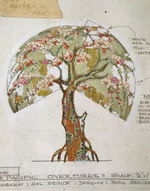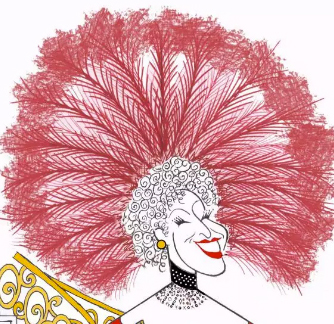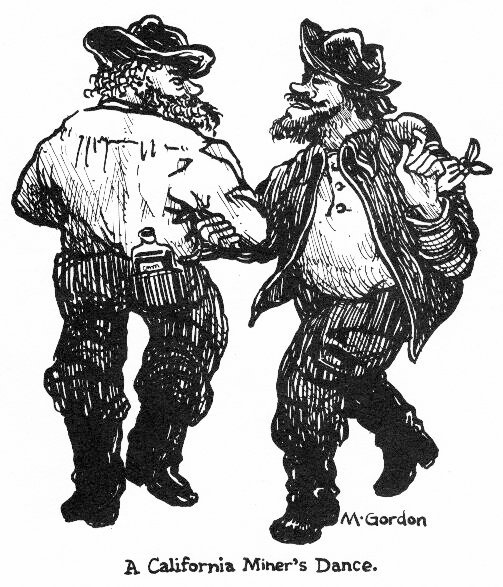What is the tension in "My Fair Lady"
#1What is the tension in "My Fair Lady"
Posted: 6/8/17 at 7:29pm
I haven't really seen the show before, but was exactly is the dramatic tension? Are we to believe that Higgins and Eliza are suppose to be a "will they" or "won't they" kind of relationship? I just don't understand what the driving force of the whole show is. Is is it suppose to be so huge ordeal if the upperclass finds out that Eliza is a fraud? I found the whole thing to be kind of boring?
#2What is the tension in
Posted: 6/8/17 at 7:36pm
Just curious: If you haven't seen the show, WHAT exactly is it that you find boring?
I admit I'm actually more familiar with Pygmalion than I am with the book of My Fair Lady, but to me it's that Higgins turns Eliza into an experiment, rather than seeing her as a human being. She wanted this better life for herself, but she doesn't know whether it's really her life, or if she'll get to keep her new status when Higgins' experiment is done. The "will they/won't they" romantic relationship creates tension, yes, but I see it as all in service of the class commentary. Can someone's class (in this society) really change? When your class changes, does it change who you are? Are the outside appearances of being upper class the same as being upper class?
#3What is the tension in
Posted: 6/8/17 at 8:55pm
On the most basic level, MFL sets up a bet in Act I Scene 1. Can Eliza be passed off as a Lady in Society? That tension builds and builds till the curtain descends on Act I still without an answer. Act II all takes place the next day, but the "tension" as you call it shifts completely to examine Eliza's personal path as a result of the experiment. A very unconventional structure for a musical when you think about it.
#4What is the tension in
Posted: 6/8/17 at 9:00pm
Exactly, which is what I find interesting and weird about it. I'm in a production of it now, so I can only see it from that perspective. But it doesn't seem to have much of a "plot" or any forward motion like most musicals. I mean, they make a bet sure, but what's the loser get? There aren't really any stakes.
#5What is the tension in
Posted: 6/8/17 at 9:24pm
It's not about the bet, it's about Liza, her evolution, and the choices she has to make.
wonkit
Broadway Legend Joined: 9/30/08
#6What is the tension in
Posted: 6/8/17 at 11:28pm
It is also about the creative process and Higgins, the control freak, realizing that another human being cannot be reshaped to his specifications, no matter how brilliant he is.
#7What is the tension in
Posted: 6/9/17 at 12:15am
JBroadway: MY FAIR LADY is as American as apple pie. PYGMALION is about how language divides British society; MFL is about how love conquers all, even social class. (As were almost all musicals of the R&H "Golden Age". See MOST HAPPY FELLA, which opened a month or two after MFL.) So despite superficial similarities in some of the lines, you can't really know one work through the other. PYGMALION does ask the questions you list; the solution to class disparity is never really in doubt in MFL.
Act I is about Higgins creating his ideal woman (and for Eliza's part, living up to Higgins' expectations). Act II is HIGGINS' journey, not primarily Eliza's. (Sorry, SOMEWHERE.) Look at Eliza's face on the stairs as the men celebrate Higgins' triumph. Eliza already knows where she stands in this pecking order: her course in Act II is virtually set in stone at the Act I curtain.
What is necessary in Act II is for Higgins to realize that he--"a confirmed old bachelor and likely to remain so" who "will never let a woman in my life"--has fallen in love with the perfect woman he (with Eliza) created. Once he does that, Eliza can return and we Americans can have our Cinderella story (with the ending Shaw hated!).
Ripped Man, I don't know what to say if you find all that boring. I fear romance died with the Twin Towers.
#8What is the tension in
Posted: 6/9/17 at 12:26am
@Gaveston: Thanks for the interesting analysis. Good to know! I've listened to the MFL score plenty of times, but I've never seen a production, and I saw the movie only once several years ago and don't remember much. I didn't recall it being all that different from Pygmalion in terms of the basic plot and themes, but I guess I stand corrected.
(Interesting that you should mention Most Happy Fella, as I'm about to start rehearsals for a production of it ![]() )
)
#9What is the tension in
Posted: 6/9/17 at 12:37am
Lucky you! Although it was overshadowed by MFL in their season, THE MOST HAPPY FELLA is one of my all time favorite shows!
Alan Jay Lerner claimed in an autobiography that the MFL libretto is 75% new lines (including lyrics, I presume). But somehow he managed to adapt it so that those who love PYGMALION think they are seeing Shaw's play with some songs added. The biggest difference, of course, is the ending. Eliza and Higgins end up together in the American musical. Shaw wrote an epilogue-essay of 100 pages or so talking about how Eliza does indeed marry Freddy and Higgins follows through with his promise to set her up in a flower shop.
ETA I haven't seen the stage show since a London revival in 1979, but I believe the film is pretty faithful. Alas, I never believe Audrey Hepburn is a "guttersnipe" and I find the transitions between her voice and Marnie Nixon's distracting. Pretty costumes, however!
#10What is the tension in
Posted: 6/9/17 at 10:43am
For some reason, there is always something compelling about a romance-without-sex plot. Whether it is The King and I or My Fair Lady or a million other similar anti-romances, you know from the outset that the two main characters are ABSOLUTELY NOT going to get together. The tension then lies in how close are they going to get--how romantic, how sexual, how cerebral, how soul-mate-ish--and what will be the straw that breaks the camel's back and makes them go to battle.
I'm not sure why this romance-without-sex works, but in the right hands,it almost always does.
Which part are you playing? Can we come see you?
ScottyDoesn'tKnow2
Broadway Legend Joined: 1/22/14
#11What is the tension in
Posted: 6/9/17 at 10:55am
There is just so much to both Pygmalion and My Fair Lady. Two of my favorite lines are Eliza's.
- The difference between a lady and a flower girl is not how she behaves, but how she is treated.
- I sold flowers; I didn't sell myself. Now you've made a lady of me, I'm not fit to sell anything else.
Then there's also the case of Alfred Doolittle. Roger Ebert, in his four star out of four review said he was happy the movie was made when it was because he thinks if the musical was adapted in the 1990s, they would have cut Alfred Doolittle out, and thus miss all the social commentary he provides. His whole spiel about middle class morality and then becoming rich enough to have to conform to that morality much to his disgust is certainly a subject matter that could have been a play in its own right (and probably has been written many times).
10086Sundays
Broadway Star Joined: 5/5/17
#12What is the tension in
Posted: 6/9/17 at 11:04am
I've never liked that Eliza came back to Higgins, because I've never felt he was truly in love with her. My only exposure to the show is the movie though, so perhaps it works better on stage.
ScottyDoesn'tKnow2
Broadway Legend Joined: 1/22/14
#13What is the tension in
Posted: 6/9/17 at 11:17am
Eliza always seemed like someone who flirted with the idea of a passionate romance, but would actually prefer the intellectual back-and-forth with low-key actions showing some affection (like Higgins buying her that ring). Even if Audrey Hepburn might have been a bit delicate looking as the cockney flower girl for many people's liking, I do think I got a sense of that in her latter scenes. Plus, she did survive Nazi-occupied Belgium, malnutrition, and did some low-key civilian spy work as a young teen.
#14What is the tension in
Posted: 6/9/17 at 11:49am
GavestonPS said: Shaw wrote an epilogue-essay of 100 pages or so talking about how Eliza does indeed marry Freddy and Higgins follows through with his promise to set her up in a flower shop.
Pardon me GavestonPS, is Shaw's essay published? I would love to read it.
#15What is the tension in
Posted: 6/9/17 at 12:40pm
It's not that I find it boring, so much as there's not much suspense. Not sure that's the right word either. I guess in today's theater I'm use to plot twists and turns, and there is nothing here. It's very straightforward. There's not really big splashing opening number, no closing number, no big Act 1 closer, etc. It's very different by musical theater standards, and I just wasn't expecting that.
And if we're suppose to believe that Higgins is falling in love with Eliza, then I've totally missed that. I don't see that at all.
(I'm in the ensemble, so just dancing and singing. It's a lot of fun waltzing around)
ScottyDoesn'tKnow2
Broadway Legend Joined: 1/22/14
#16What is the tension in
Posted: 6/9/17 at 1:27pm
Spiritual_Master said: "GavestonPS said: Shaw wrote an epilogue-essay of 100 pages or so talking about how Eliza does indeed marry Freddy and Higgins follows through with his promise to set her up in a flower shop.
Pardon me GavestonPS, is Shaw's essay published? I would love to read it.
"
I think most publishers provide the epilogue with Pygmalion. It's quite entertaining to read.
As to whether MFL is boring, I think that's where you need a good creative team behind it. The text itself as well as the musical numbers are brilliant. It may not have plot twists or suspense in today's standards since MFL and Pygmalion's stories have now been told in different ways millions of times, but the writing is still impeccable. Stop searching for tension or plot twists (why do shows NEED plot twists? Do people really need that to hold their attention these days?) and try to just immerse yourself in the story it is telling and find all the subtext there. There's actually a lot to take from this show.
bk
Broadway Legend Joined: 7/20/03
#17What is the tension in
Posted: 6/9/17 at 2:57pm
Plot twists and turns? That's musical theater? And today's shows should not be used as barometers of anything, frankly. Anytime I see posts about a musicals and the poster uses words like "no stakes" they've either been reading too many musical theatre 101 books or attending too many classes taught by people who love these little catchwords. Happily, no one can use "but what's her I want song" about My Fair Lady, since Mr. Lerner since Mr. Lerner thoughtfully inserts the word "want" in it right away. Whew!
#18What is the tension in
Posted: 6/9/17 at 4:48pm
Class is certainly the main plot engine in MFL - Higgins sees himself as having mastery over both sex and class. He is setting himself to the challenge of breaking the class barrier via his own creation: Eliza. It's kind of his "Finishing the Hat" - he is creating a lady where there never was a lady before. Despite setbacks (Ascot) he achieves his triumph. But, shades of Into the Woods, now he has to deal with the consequences of what he did to achieve his goal, and finds that he can't so easily cast his work of art aside.
On the subject of class, I have never understood where Higgins fits in the British class system. Obviously he is middle class, but his mother seems closer to upper class? Or maybe she is from several generations of wealthy middle class? Or is he a couple of generations removed (via younger sons or daughters) from upper class? Of anyone has any insight I would appreciate it.
#19What is the tension in
Posted: 6/9/17 at 5:22pm
Anyone with a box at Ascot is of the upper classes. If Mrs. Higgins is upper crust, so is her son, though he absolutely detests most of those in his class. Hence his inappropriate wardrobe at Ascot. But he has all the funds he needs to order up Eliza's series of Paris couture gowns, rent the jewels and show up himself in white tie, tails and silk top hat when appearing at the Embassy Ball. Nothing middle class about him.
#20What is the tension in
Posted: 6/9/17 at 6:43pm
Someone in a Tree2 said: "Anyone with a box at Ascot is of the upper classes. If Mrs. Higgins is upper crust, so is her son, though he absolutely detests most of those in his class...."
I don't know about that. Anyone with a box at Ascot is rich.That would qualify for upper class in the US but not in Britain. You are born into upper class. Neither Henry nor his mother seem to have a title - which would make them middle class. There is absolutely no grey area in the British class system when it comes who is or is not nobility. And if you are not in the nobility the best you can hope for is to be rich middle class (like the Rothschilds for generations before they got their title).
#21What is the tension in
Posted: 6/9/17 at 6:53pm
Technically, Pickering has to pay for Eliza's wardrobe because he lost the bet. But I'm not sure which of them actually paid when they bought/rented the things -- whether Pickering paid at the time, or reimbursed Higgins later.
#22What is the tension in
Posted: 6/9/17 at 7:44pm
PalJoey said: "
For some reason, there is always something compelling about a romance-without-sex plot. Whether it is The King and I or My Fair Lady or a million other similar anti-romances, you know from the outset that the two main characters are ABSOLUTELY NOT going to get together. The tension then lies in how close are they going to get--how romantic, how sexual, how cerebral, how soul-mate-ish--and what will be the straw that breaks the camel's back and makes them go to battle.
I'm not sure why this romance-without-sex works, but in the right hands,it almost always does....
"
I think you explain very well why the romance-without-sex plot works. And even though the American version (MFL) doesn't really specify what sort of relationship lies ahead for Higgins and Eliza, the ending still satisfies us.
Good point, joey. Maybe we could call these "impossible romances", since that's what they appear to be, even when a reversal ultimately makes them "possible" after all. Other examples would be BRIGADOON, MAN OF LA MANCHA, WEST SIDE STORY and even THE MUSIC MAN.
In fact, the entire Hammerstein "formula" is based on a central pair of lovers who seem to be star-crossed because they come from rival groups. Their eventual union also serves to integrate their respective communities.
#23What is the tension in
Posted: 6/9/17 at 7:52pm
Spiritual_Master said: "
Pardon me GavestonPS, is Shaw's essay published? I would love to read it.
"
As a matter of act, I found it free on line. I assume it is complete and, though long enough, I exaggerated at 100 pages. (I was probably confusing it with MISALLIANCE.)
http://www.bartleby.com/138/6.html
Shaw calls it "Sequel: What Happens Afterward". Some editions of PYGMALION include it at the end.
#24What is the tension in
Posted: 6/9/17 at 7:56pm
GavestonPS said: "PalJoey said: "
For some reason, there is always something compelling about a romance-without-sex plot. Whether it is The King and I or My Fair Lady or a million other similar anti-romances, you know from the outset that the two main characters are ABSOLUTELY NOT going to get together. The tension then lies in how close are they going to get--how romantic, how sexual, how cerebral, how soul-mate-ish--and what will be the straw that breaks the camel's back and makes them go to battle.
I'm not sure why this romance-without-sex works, but in the right hands,it almost always does....
"
I think you explain very well why the romance-without-sex plot works. And even though the American version (MFL) doesn't really specify what sort of relationship lies ahead for Higgins and Eliza, the ending still satisfies us.
Good point, joey. Maybe we could call these "impossible romances", since that's what they appear to be, even when a reversal ultimately makes them "possible" after all. Other examples would be BRIGADOON, MAN OF LA MANCHA, WEST SIDE STORY and even THE MUSIC MAN.
In fact, the entire Hammerstein "formula" is based on a central pair of lovers who seem to be star-crossed because they come from rival groups. Their eventual union also serves to integrate their respective communities.
Gaveston, your last sentence, for me, sums up a lot of what makes MFL interesting as well: there is never a likelihood of the two communities integrating, and Eliza is constantly pulled between the two without the chance of a resolution; she must choose, there is no third option of bridging the gap. We'll have to see what it looks like next season, but I could see a twenty-first-century MFL bringing those class issues back to the forefront, rather than just the quasi-romance.
#25What is the tension in
Posted: 6/9/17 at 8:10pm
RippedMan said: "It's not that I find it boring, so much as there's not much suspense. Not sure that's the right word either. I guess in today's theater I'm use to plot twists and turns, and there is nothing here. It's very straightforward. There's not really big splashing opening number, no closing number, no big Act 1 closer, etc. It's very different by musical theater standards, and I just wasn't expecting that.
"
Although it has some big numbers (the "Ascot Gavotte" was entirely ingenious when it debuted), the basic story (even going back to the original Greek myth) only involves a few characters. The musical play allows that content to mostly dictate its form--with Doolittle's music hall number thrown in for variety.
I didn't mean to pick on you and you are right that MFL is not a suspense thriller. But the pleasure of watching characters from different social classes collide over issues of morality can be considerable.










